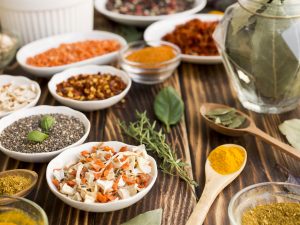As a woman in my mid-life journey, I know all too well how menopause can shake up our bodies and minds. Hot flushes, restless nights, mood swings that come out of nowhere, this stage of life can feel overwhelming. But as a long time practitioner of Ayurveda, the ancient Indian system of medicine, I have seen first hand the significant benefits of how it can help with menopause. Instead of seeing it as a dreaded ending, Ayurveda helps me embrace it as a natural transition, one where balance, nourishment, and self-care take centre stage.
Ayurveda teaches that menopause is closely linked to the Vata dosha, which governs movement and transition in the body. As Vata rises, symptoms such as dryness, anxiety, and disturbed sleep can appear. When I read about this, it made perfect sense. Menopause had left me feeling scattered and restless, very much like Vata gone wild. Ayurveda’s goal is to bring the doshas, Vata, Pitta, and Kapha, back into harmony, so the body and mind can feel settled again.
What I love about Ayurveda is its deeply personalised approach. There is no one-size-fits-all solution; instead, it looks at each woman’s unique constitution, or Prakriti, and the imbalances she faces. For me, the emotional ups and downs were the hardest part. Ayurveda suggests herbs like Ashwagandha for calming the mind, along with meditation and breathing practices to keep stress at bay. I began introducing these slowly, and the difference was subtle but steady less irritability, fewer anxious thoughts.
Sleep, or rather the lack of it, was another big challenge. Ayurveda recommends a regular sleep routine and herbs like Brahmi to encourage better rest. I started winding down with warm herbal teas and a strict “no screens” rule before bed. It felt small at first, but gradually my nights became less disturbed.

Then there’s the issue many of us dread: weight gain. Ayurveda doesn’t promote crash diets or punishing workouts. Instead, it encourages nourishing, warm foods and regular movement, think yoga or brisk walking rather than high-impact exercise. For vaginal dryness, which no one talks about enough, Ayurveda suggests natural lubricants like coconut oil or aloe vera gel. These simple, natural remedies feel far kinder to the body than reaching for synthetic alternatives straight away.
Ayurveda also offers beautiful therapies like Abhyanga (warm oil massage) and Shirodhara (a calming practice where warm oil is poured over the forehead). I haven’t yet tried these, but many women swear by them for reducing stress and restoring a sense of well-being. Panchakarma treatments, deep cleansing therapies, are also recommended for rejuvenation during this phase of life.
Diet plays a huge role in balancing hormones and easing symptoms. For Vata, warm, cooked, and nourishing foods with sweet, sour, and salty tastes are best. I learned that “sweet” here doesn’t mean sugary cakes but wholesome foods like milk, nuts, seeds, whole grains, and healthy fats such as ghee, which Ayurveda treasures for its hormone-supporting properties. Cold salads and iced drinks, which I thought were healthy, actually aggravated my symptoms because they increase Vata’s cold, dry qualities.
Women with a fiery Pitta imbalance, those experiencing anger or hot flushes, benefit from cooling foods like juicy fruits and mild spices, while those with a Kapha imbalance, who may feel heavier or lethargic, are encouraged to eat lighter meals with warming spices to boost digestion and energy.
What Ayurveda has shown me is that menopause isn’t something to “get through” with gritted teeth. It’s a time to pause, listen to our bodies, and nurture ourselves in ways we may have neglected for years. By balancing the doshas through diet, herbs, lifestyle changes, and gentle therapies, we can make this transition smoother and maybe even embrace it as a period of renewal rather than loss.
Menopause is inevitable. But suffering through it? According to Ayurveda, that doesn’t have to be.




